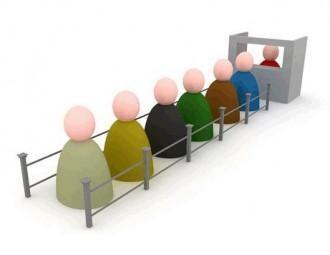Elena Tonkacheva: Openness of state structures in Belarus suggests no optimism

The problem of access to information owned by state structures is topical for Belarus.
Such an opinion in the talk with the EuroBelarus Information Service shared Elena Tonkacheva, human rights activist and the head of the Legal Transformation Centre “Lawtrend”.
In early September Belarusian Association of Journalists (BAJ) summed up the results of the survey conducted among its members in regard to the openness of state structures on the possibility of access to information by Mass Media. The Ministries of Health, Agriculture and Food together with the KGB Office were identified as the most closed structures. In general, the work of state bodies with the Mass Media was assessed negatively.
Elena Tonkacheva noted that the conducted survey covered only one among many aspects of the huge problem. “I can say that so far there is no integrated study regarding this issue in Belarus”, - she stated, noting that the Legal Transformation Centre is now finishing yet one more research on this topic. This research deals with the study of central authorities’ websites for the accessibility of the information about the work of these authorities.
“For now we see a very serious problem as to how legislation requirements as to the information placed at official websites are fulfilled. The problem lies both in insufficient legal regulations and in imperfect law enforcement”, - emphasized Elena Tonkacheva.
One more problem is the practice of giving runarounds as an answer to the requests submitted by citizens or all the interested organizations. “People often receive empty answers, even if on time”, - stated the head of the Lawtrend.
The third aspect concerns cases when the information within the jurisdiction of the authorities is initially unavailable for the society. “Let us recall the recent case when the representatives of ecologic organizations were trying to get information about the town planning, - Elena Tonkacheva made a supposition. – This information, which is not only socially important, but also falls under the Aarhus Convention, is confidential now; it is only through court that the representatives of the civil society can get it”. According to the expert, it is the legislative regulation we should blame in this case.
In order to sort out the problem with the openness of state bodies for the publicity, Belarus still has a long way to go, Elena Tonkacheva believes. “In any case, the situation is not that optimistic as some officials are trying to present it”, - noted the head of the Lawtrend with regret.
-
03.01
-
07.10
-
22.09
-
17.08
-
12.08
-
30.09



























